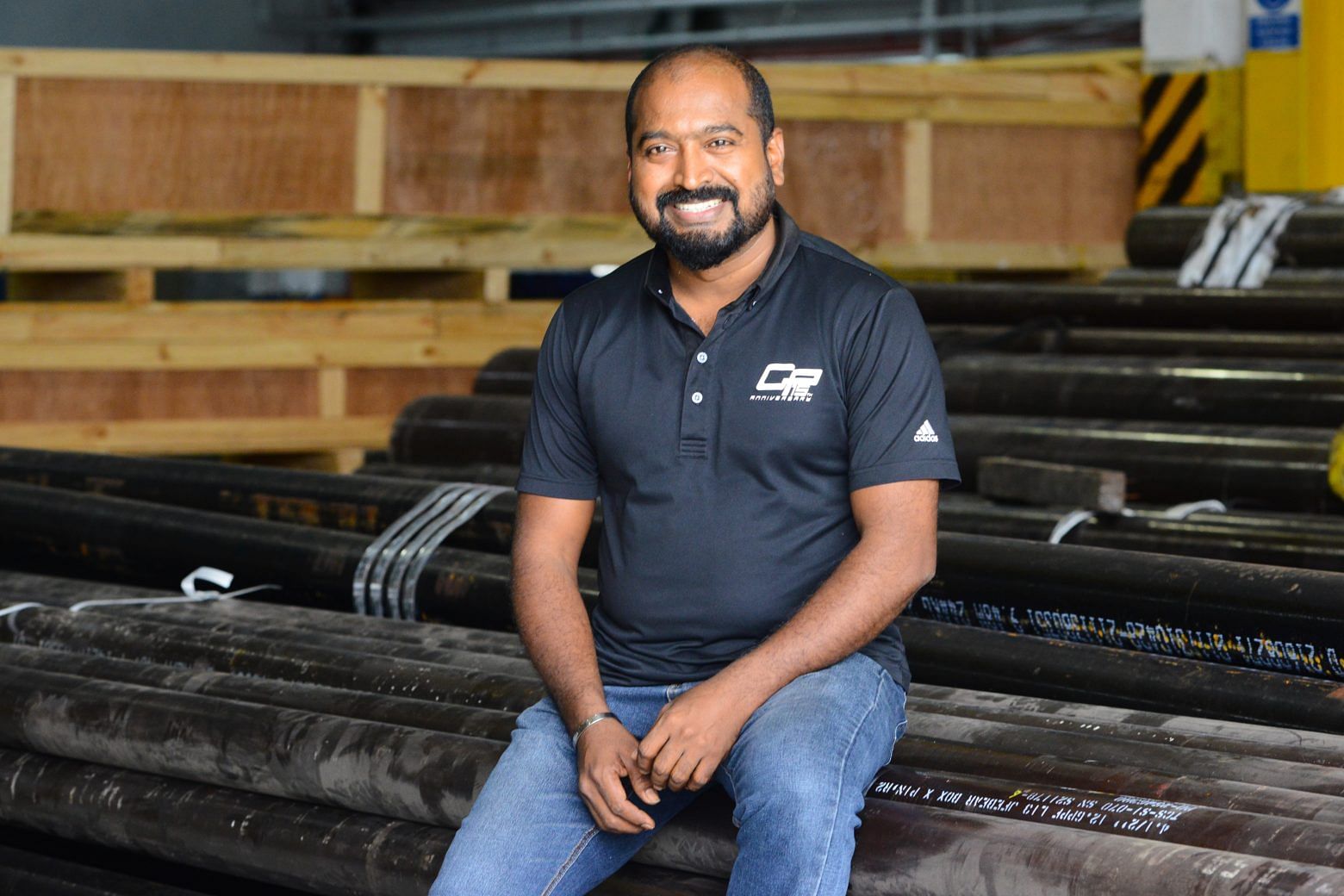While many workers have spent the last two pandemic years in a state of stagnancy and uncertainty, Mr Perumal Sathishbabu, 42, has been busy enjoying an exciting new journey of discovery.
He has already been having a fulfilling career at Singapore-based Completion Products since 2006. But the past three years have been especially exciting for the assistant production manager.
Between 2019 and 2021, Mr Sathishbabu attended seven courses on various organisational development skills such as leadership and change management – even as he adapts to using new technologies.
He is among those who have used the Covid-19 pandemic to gear up for the shift to a digital-first world.
Such training courses have given him a better understanding of how to improve processes, minimise business risks and achieve goals.
“I am grateful for the new skills and learning derived from training,” he says. “I’m now aware of what are some non-value added activities and how to improve processes to better align to customer requirements.”
For him, it is a matter of remaining relevant. For businesses like his company, this means having to rethink the way they operate – faster digital transformation to be more efficient and resilient.
Completion Products is an advanced manufacturing firm that designs and develops equipment for companies in the oil and gas industries. It has been leveraging technology as it adapts and grows.
It is in the midst of reviewing its current transformation plan and moving towards digitalisation and Industry 4.0, keeping pace with the Government’s plan to transform Singapore into a global hub for innovation and advanced manufacturing.
A 10-year plan to grow Singapore’s manufacturing sector by 50 per cent and maintain its gross domestic product (GDP) share of about 20 per cent was announced last month by Trade and Industry Minister Chan Chun Sing.
Says Ms Gigie Itchon, 50, supply chain manager at Completion Products: “It is a natural progression for us to adopt Industry 4.0 as it improves our operational efficiency and quality of products.
“It enables us to provide greater value to our clients through our products and technology.”

The shift to Industry 4.0 will see the company introducing open-source platforms such as Manufacturing Execution Systems, connecting all its machines and collecting data. The data collected will then be integrated across its human and enterprise resource systems, to help the company easily review and make informed business decisions.
“This integration provides us with more flexibility and lower costs, and enables us to do more,” she adds.
Growing people
Beyond investing about $500,000 in technology, the company is also focusing on another essential asset as it transforms its business: People.
Says Ms Itchon: “As our company digitalises, it is imperative that our people are equipped, prepared and competent enough to execute new job requirements,”
“The centre of any business transformation is people. Companies need to invest and prioritise the upskilling of their people to ensure that they are up to speed on the latest innovation and remain relevant,” she adds.
Mr Sathishbabu is not alone in his development journey. Completion Products has been regularly sending its employees across all departments for training, including Workforce Skills Qualification courses, says Ms Itchon.
At the start of the pandemic, however, the company’s sales revenue was affected. It had to reduce costs, which left the company with a reduced budget for training.
Fortunately, Completion Products was able to tap on the SkillsFuture Enterprise Credit. The credit provides employers with funding support as they invest in transforming their business and enhancing the capabilities of their workers. Eligible employers will receive additional support for their enterprise and workforce transformation efforts, over and above the support levels of existing schemes.
“The SkillsFuture Enterprise Credit helped to defray training costs and we were able to send more staff for upskilling,” says Ms Itchon.
Completion Products, which has about 89 employees, sent about one-third of its employees for training courses with the help of the credit.
They attended courses such as Lean Six Sigma – a team-focused approach on improving work performance and reducing inefficiency – and Workforce Skills Qualification courses on innovation, leadership and management.
Developing growth mindsets
For Completion Products, one of the main benefits of upskilling is the change in mindset.
This is evident in how employees approach their jobs, says Ms Itchon. Those who have attended training are more aware of how they work and tend to analyse the efficiency of work processes, she observes.
For instance, employees who went for the Lean Six Sigma training learnt how to identify “wasteful” activities – activities that consume resources such as time and manpower, but do not create any value for the customer.
Following the training, many of them became motivated to innovate, providing suggestions on how work processes can be improved. This includes optimising the shop floor to reduce waste, such as the time spent travelling across the manufacturing line.

Mr Sathishbabu shares that regular training courses have also made him more receptive to change and newer ways of working, including the use of technology. As the assistant production manager, the bulk of his day is often spent overseeing production activities and shipments.
In the past, this meant having to check the production schedule – which was printed and pasted on a wall – repeatedly throughout the day. Now, with the help of an integrated software and tablet, Mr Sathishbabu can easily access the production schedule and real-time updates on activities across the manufacturing process anywhere.
“It has opened my mind on change management,” he says. He says he looks forward to incorporating more technology and data analytics in his work as the company continues to transform.
This year, Completion Products has already identified courses for its employees in skills ranging from people and performance management, workplace communication and lean techniques.
“These courses are very helpful in encouraging innovation and growing the mindsets of people,” says Ms Itchon. “Tapping on the credit helps SMEs like us speed up our operations, processes and implementations, so we can improve and grow quicker.”
What is the SkillsFuture Enterprise Credit?
The credit encourages employers to invest in enterprise transformation and enhancing the capabilities of their employees.
Eligible employers will receive a one-off $10,000 credit to cover up to 90 per cent of out-of-pocket expenses for supported initiatives, over and above the support levels of existing schemes.
What are the supported programmes under the SkillsFuture Enterprise Credit?
These include programmes within enterprise transformation initiatives such as the Enterprise Development Grant, Market Readiness Assistance Grant and Productivity Solutions Grant; and workforce transformation programmes such as Skills Framework-aligned courses, Career Conversion Programme, and Job Redesign initiatives.
Employers are encouraged to use the credit to train and upskill their workers. As such, they can only use up to $7,000 on enterprise transformation programmes. There is no limit on how much they can use for workforce transformation.
Find out more about the SkillsFuture Enterprise Credit and its supported programmes here.
This is the first of a four-part series titled "Skill up to scale up" in partnership with SkillsFuture Singapore

